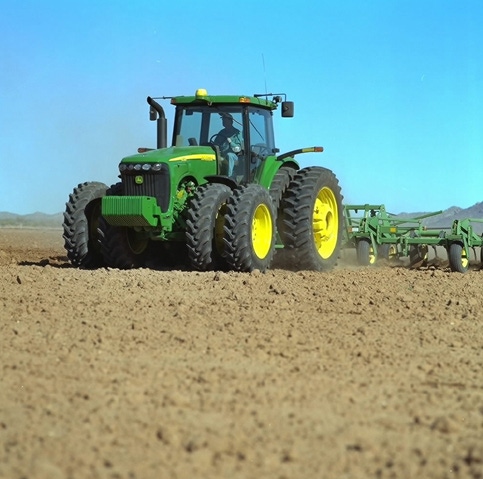August 20, 2018

Question: I’m leasing out my land to hunters this year. What type of documentation should I obtain from them?
Answer: This is a common question asked by Texas landowners. They want to allow their friends, family, or the public to enter their property for activities like hunting, fishing, or swimming, but also want to protect themselves against liability. I recommend three documents be signed by and collected from each person entering the property for a recreational use, such as hunting.
Hunting Lease. All landowners should require a hunting lease be signed by anyone coming onto the property. For example, if Landowner leases his land to Bob, who will be bringing his brother Bill with him, Landowner should obtain signed hunting leases from both Bob and Bill. Why do they both need to sign a lease? Unless a person signs the lease, he or she is not bound by its terms. For this reason, it is prudent to require everyone who is entering the property to sign a lease agreement. Further, the lease agreement should provide that additional persons may only enter the property with the written consent of the landowner, thereby giving the landowner notice that another person may be coming and the chance to obtain the necessary documents from the additional party. Finally, as you might have gathered by requiring signatures, it is critical that all hunting leases be in writing. For help determining the terms that should be included in a hunting lease agreement, click here to see our Ranchers’ Agricultural Leasing Handbook, which contains a checklist and sample language for a hunting lease or listen to this prior Ag Law in the Field Podcast episode on hunting leases. I always recommend that any lease agreement be reviewed by a licensed attorney. Spending money up front to get a good hunting lease form, which can likely be used for years to come, is well worth it and will likely save money in the long run if it helps to avoid or settle a dispute.
Liability Waiver. I always recommend that hunters or other recreational guests on the property sign a waiver of liability. As we have discussed in this prior blog post, Texas courts will generally enforce these liability waivers when executed by an adult. (Courts are far less likely to enforce this type of waiver when signed by a parent purporting to waive liability on behalf of a minor.) In order to be enforceable in Texas, the waiver must meet the requirements of the express negligence doctrine and must be conspicuous. This requires including certain language in the waiver and means that it cannot be hidden in the fine print of a larger document, like a hunting lease. Again, I recommend landowners consult with an attorney to draft a valid liability waiver that can be used repeatedly in their operation.
Texas Agritourism Act Waiver. The Texas Agritourism Act is a relatively new statute, passed in 2015, which provides that agritourism entities are not liable for injuries to persons engaged in a recreational or educational activity on the property, so long as a sign is posted or specific release language is signed. [Read this prior blog post for more details.] All farms and ranches are likely considered an “agritourism entity” as that is defined simply as someone allowing a recreational or educational activity (hunting included) on land that is suitable for growing crops or raising livestock. Because of these broad protections, I advise landowners to obtain the signed Agritourism Act Waiver from each person entering the property. The waiver must be signed before the activity, by the participant or their parent or legal guardian, printed in 10-point bold font, and separate from any other agreement between the parties except a different warning, consent, or assumption of risk. This means the language should not be just added to your traditional hunting lease. Instead, I recommend it be printed on a separate page for the hunters to sign. The language must be as follows: AGREEMENT AND WARNING: I UNDERSTAND AND ACKNOWLEDGE THAT AN AGRITOURISM ENTITY IS NOT LIABLE FOR ANY INJURY TO OR DEATH OF AN AGRITOURISM PARTICIPANT RESULTING FROM AGRITOURISM ACTIVITIES. I UNDERSTAND THAT I HAVE ACCEPTED ALL RISK OF INJURY, DEATH, PROPERTY DAMAGE, AND OTHER LOSS THAT MAY RESULT FROM AGRITOURISM ACTIVITIES. One important note here is that under the Agritourism Act, a landowner can choose to either obtain this signed language or hang a similar sign. Doing either will obtain the Act’s protections. The one scenario where there appears to be an added benefit of obtaining the signed waiver is if there will be minor children (under 18) on the property. As noted above, courts generally do not enforce general liability waivers signed on behalf of a minor. However, the language of the Agritourism Act’s signed waiver section expressly states that it may be signed by a parent, guardian, or managing conservator (custodial parent) on behalf of a minor. This appears to be strong indication of Legislative intent to allow such waivers to be enforced. Thus, if you are letting minors on your property for a recreational or educational purpose, the signed waiver is likely an important document to have on file.
{For more information on hunting leases, listen to this past podcast with Trace Blair and check out our Ranchers Agricultural Leasing Handbook.}
About the Author(s)
You May Also Like




